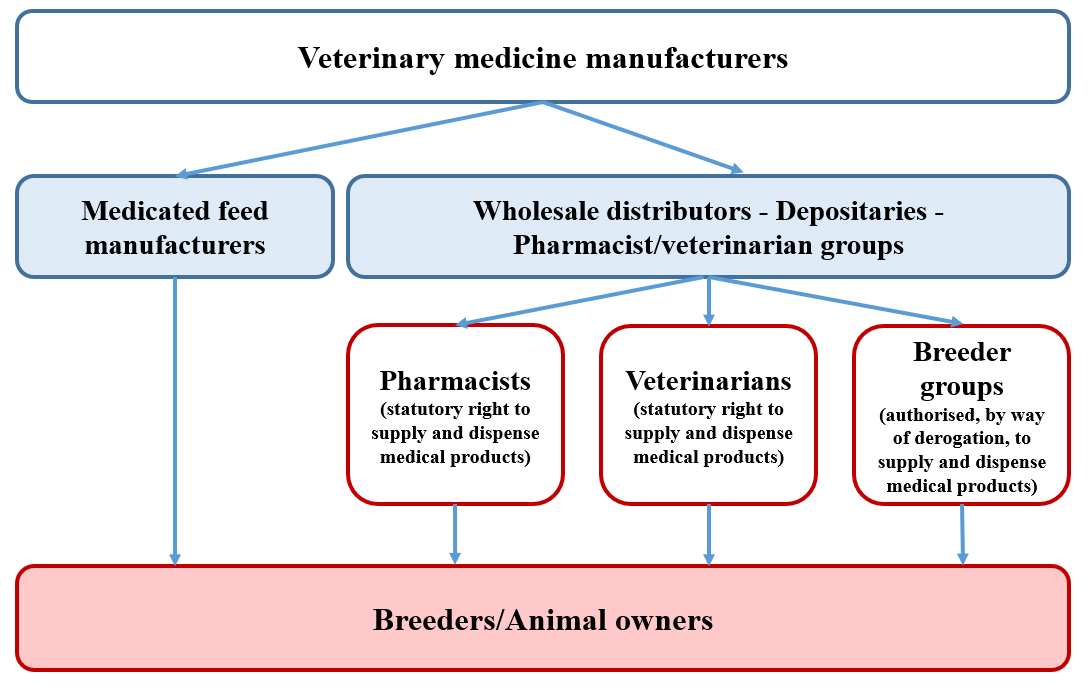The Autorité de la concurrence publishes its opinion on pricing conditions for veterinary medicines and changes in the cost of veterinary care

Background
On 18 June 2024, the French Minister of the Economy, Finance and Industrial and Digital Sovereignty asked the Autorité de la concurrence for an opinion on the pricing conditions for veterinary medicines and changes in the cost of veterinary care in France.
In its opinion, the Autorité notes a changing landscape in the veterinary profession, with the development of networks of “corporate”[1] veterinary clinics, and identifies an across-the-board increase in the cost of animal care, which may be amplified by certain factors at work in these networks and by their sometimes high levels of concentration at departmental and municipal level. The Autorité will therefore remain vigilant regarding the structural effects of mergers in this sector and may consider reviewing, ex post, veterinary clinic acquisitions that raise competition concerns.
In the veterinary medicine market, the Autorité notes that central negotiation bodies are playing a growing role in commercial discussions with laboratories. Some laboratories and wholesale redistributors have raised questions about this, complaining that discount rates are too high and that veterinarians’ prescription behaviour is being influenced by these central bodies. However, the Autorité did not find any concerns in this respect, as the commercial conditions applied are mainly the result of negotiation and competition between manufacturers. Moreover, at this stage, the conditions required to establish that laboratories are in a situation of economic dependence vis-à-vis central negotiation bodies are not met.
Lastly, after examining the ethics rules applicable to the veterinarians, the Autorité notes that while certain restrictions of an ethical nature may be justified in light of general interest objectives, other provisions are unjustified and likely to restrict the exercise of the veterinary profession.
The Autorité notes the growth of corporate networks and the risks of excessive concentration
- Changes in the veterinary profession
The Autorité found a diversity of practice models within the profession, with an increasing shift toward group practice through companies and networks of clinics. Some of these networks, called “corporate” networks, in which non-veterinary third-party investors hold a minority stake, have become more widespread across the country and are attracting a growing number of practising veterinarians, indicating a lasting reshaping of the veterinary landscape in the years ahead.
These corporate networks show significant levels of concentration in certain départements, and very high levels in some municipalities, illustrating the cumulative effects of clinic acquisitions, most of which take place outside the scope of merger control.
The growth of corporate networks in the French veterinary services sector raises questions about their impact on competitive intensity, in particular in the downstream consumer veterinary services market.
While this change may have procompetitive effects that benefit consumers, such as more attractive prices or services resulting from shared costs and investments, excessive market concentration could weaken competition to the detriment of consumers, in particular where there are no alternatives or it leads to price rises or a deterioration in services.
- The possibility of ex-post control of the most problematic transactions
The Autorité will keep a close watch on market trends and strive to understand the structural effects of the gradual development of corporate networks.
In particular, if the integration of a veterinary clinic into a network were to qualify as a merger, without, however, meeting the notification thresholds, the Autorité would draw the attention of the companies concerned to the need to ensure that such a transaction is not anticompetitive; in such cases, the Autorité could potentially examine, ex post, the most problematic transactions.
The Autorité notes an increase in the cost of animal care and identifies factors likely to drive high prices
All the operators consulted as part of this opinion agreed that the cost of care has risen in recent years. This increase is more pronounced among veterinarians who have joined a corporate network.
The Autorité notes that certain factors at work in these networks, such as the distribution of pricing schedules for veterinary procedures and the setting of turnover and performance targets for clinics, raise concerns about the degree of independence of private practice veterinarians, who are members of such networks, to establish their commercial and financial strategy.
Assuming these private practice veterinarians are considered, under competition law, as autonomous entities vis-à-vis the networks’ management bodies, such factors could, under certain conditions, constitute an anticompetitive practice involving price-fixing.
Furthermore, the relatively high levels of concentration within corporate networks could see the adoption and maintenance of high prices by member veterinarians, insofar as there would be less scope for price competition in the areas concerned.
The growing role played by central negotiation bodies in commercial discussions with laboratories
Veterinary medicine distribution circuit in France

Central negotiation bodies are playing a growing role in the veterinary medicine distribution circuit, with nearly all veterinarians now using their services. These bodies, which do not have wholesale distributor status, have developed to consolidate veterinarians’ purchases and obtain better commercial terms. Five players now account for over 70% of veterinary medicine purchases in France.
Some manufacturers and wholesale redistributors have criticised this grouping of purchasing professionals as a source of difficulty in commercial negotiations. These difficulties include, for example, product delisting or threats of delisting by central negotiation bodies and networks, as well as veterinarians’ freedom to prescribe being influenced by negotiation results. However, these practices must be put into perspective and cannot, a priori, be considered anticompetitive, insofar as they are the result of negotiation and competition between manufacturers.
The negotiation by central bodies of discount rates that are considered disproportionate or out of line with the real value of medicines has also been criticised, with some laboratories calling for regulation, or even a ban on such discounts. However, the Autorité considers that introducing regulations or bans on discounts would be neither desirable nor effective and would result in major practical difficulties. Setting a discount ceiling would be difficult to justify objectively, given all the economic factors taken into account in commercial negotiations, and could have several adverse effects, such as a general rise in veterinary medicine prices.
Furthermore, while the growing concentration of laboratory sales through central negotiation bodies raises questions about changes in the competitive dynamic between laboratories and central bodies, the Autorité considers that it would be difficult to establish that a given laboratory is in a situation of economic dependence vis-à-vis a particular central negotiation body, as the analysis criteria do not seem to be met in this instance.
At this stage, the Autorité considers that there is no evidence of a worrying imbalance of power in the upstream market in France, in particular since most of the laboratories concerned operate mainly internationally and continue to invest in research and development in the veterinary sector.
After examining the ethics rules applicable to veterinarians, the Autorité concludes that several unjustified provisions could restrict the exercise of the profession
The Autorité therefore recommends that several provisions related to remuneration, fee setting and communication by veterinarians be removed from their code of professional conduct.
In the interests of transparency for animal owners, the Autorité also recommends that certain obligations be added to veterinarians’ code of professional conduct.
Summary of the recommendations made by the Autorité:
The Autorité recommends the following provisions be removed from veterinarians’ code of professional conduct:
- the paragraph stating that “veterinarians’ remuneration may not depend on criteria that would undermine their independence or the quality of their veterinary medical procedures”;
- the wording “tact and moderation” with regard to how veterinary fees are determined, or replacing those words with explicit terms, or specifying the cases concerned;
- the ban on “all practices aimed at lowering remuneration in the interests of competition (...) where such practices compromise the quality of care”;
- the wording “dignity of the profession” concerning communication by veterinarians, or replacing those words with explicit terms, or specifying the cases concerned; and
- the ban on “the bulk sending of pricing or promotional information on veterinary medicine products, even together with a related technical communication”.
The Autorité also recommends the following provisions be added to veterinarians’ code of professional conduct:
- a requirement for the prices of veterinary medical procedures to be displayed on veterinarians’ websites; and
- a requirement for clinics belonging to a network to indicate this membership on all documents or other medium presenting their activity.
1 Veterinary clinics in which third-party investors that are not veterinary professionals hold a minority stake.
Opinion 25-A-12 of 13 October 2025
Contact(s)
